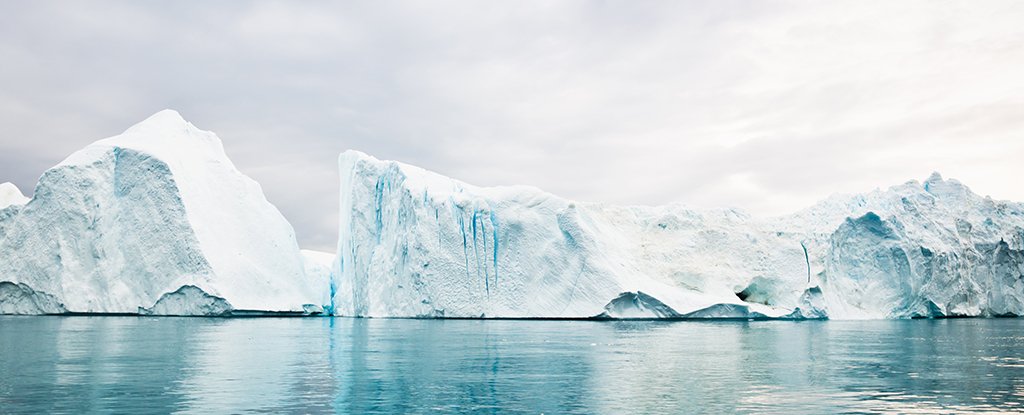Products You May Like
Polyfluoroalkyl and perfluoroalkyl substances (PFAS) are known as ‘forever chemicals’ because they don’t naturally break down in the environment. Now a new study reveals the increasing pace of Arctic ice melt is leaking more of these chemicals into the environment.
PFAS don’t originate in the Arctic, but they do settle there – they’re used in all kinds of human-made products and processes, from pizza boxes to foam used to fight fires. Once released into the atmosphere, they’re often trapped in Arctic ice floes.
This is nothing new. But in a worrying new study by chemists from Lancaster University in the UK, it appears the concentrations of PFAS in bulk sea ice are closely related to the salinity of the water. So the more briny the sea, the more concentrated these forever chemicals get.
The problem is that the planet warms up, cycles of melting and freezing form pockets of highly saline ocean water, packing PFAS into tiny pools. Eventually, those highly concentrated chemicals are released into general circulation.
“The changing nature of sea ice, with earlier and erratic periods of thaw, could be altering the processing and release of pollutants alongside key nutrients, which in turn affects biota at the base of the marine food web,” says environmental chemist Crispin Halsall, from Lancaster University in the UK.
PFAS are known to be toxic to humans and animals alike, which is why their release into the food chain is such a worry. Previous studies have linked them with problems including liver damage and issues with fetal growth.
Earlier research had shown that PFAS concentrations in surface seawater close to melting Arctic ice floes were up to two times higher than comparable readings taken in the North Sea.
Based on another recently published study, it seems that many of these chemicals arrive via snowfall on top of the ice.
To investigate in more detail how these chemicals are likely to be released, the team used an artificial sea-ice chamber to run controlled experiments that measured the movement of chemicals between water and ice during phase shifts.
Initially, as ice melts, the water carries a large percentage of the salts dissolved in it.
Not only did this portion also contain a large amount of PFAS, the team found, they consisted largely of shorter chain varieties. Later, when the meltwater was fresher, the PFAS chains were somewhat longer.
Long periods of thawing in the Arctic are releasing this brine and causing it to mix more regularly with snow meltwater – which may be where these increased contamination concentrations are coming from, according to the researchers.
The issue is that we’re now seeing the Arctic Ocean dominated by one-year ice – replacing older ice that’s formed over many years. This young ice contains a lot of mobile brine that can interact with snow and further concentrate PFAS contaminants.
And that’s an immediate problem for organisms in direct contact with the ice – organisms at the bottom of the Arctic food chain – which often snack on the brine channels of the ice floes they’re connected to, and will now be exposed to more of these chemicals.
The study is part of the EISPAC (Effects of Ice Stressors and Pollutants on the Arctic marine Cryosphere) project, being run by organizations from the UK and Germany. The team is calling for further restrictions on the use of PFAS in the future.
“More controlled experiments, together with careful observational studies in the field, are now required to understand these complex yet potentially important processes, particularly with regard to chemical exposure to organisms at the base of the marine food web,” conclude the researchers.
The research has been published in Environmental Science & Technology.
